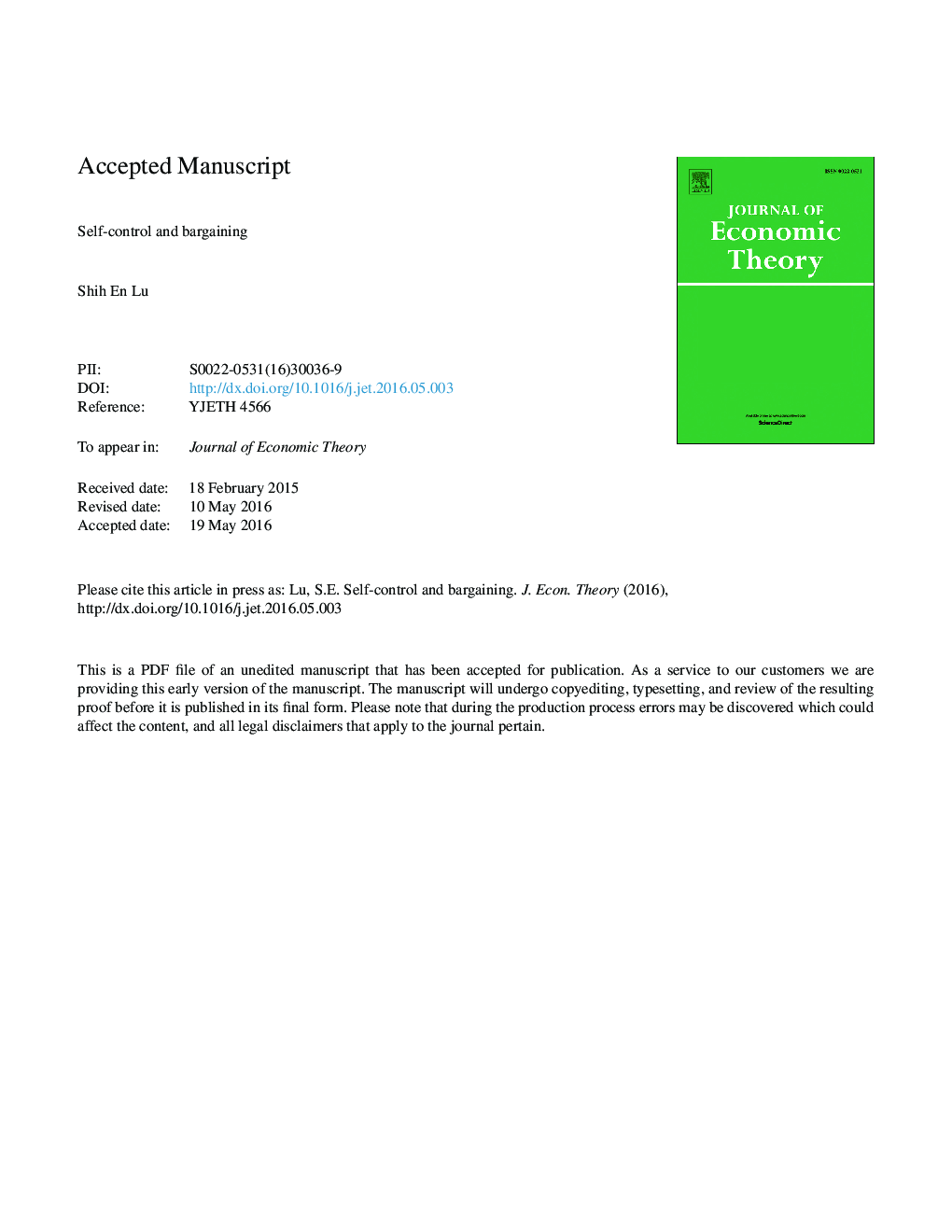| Article ID | Journal | Published Year | Pages | File Type |
|---|---|---|---|---|
| 7359460 | Journal of Economic Theory | 2016 | 35 Pages |
Abstract
This paper examines a bargaining game with alternating proposals where sophisticated quasi-hyperbolic discounters negotiate over an infinite stream of payoffs. In Markov perfect equilibrium, payoffs are almost always unique, and a small advantage in self-control can result in a large advantage in payoff. In subgame-perfect equilibrium, a multiplicity of payoffs and delay can arise, despite the complete information setting. Markov perfect equilibria are the best subgame-perfect equilibria for the agent with more self-control, and the worst for the agent with less self-control. Naïveté can help a player by increasing their reservation value.
Related Topics
Social Sciences and Humanities
Economics, Econometrics and Finance
Economics and Econometrics
Authors
Shih En Lu,
